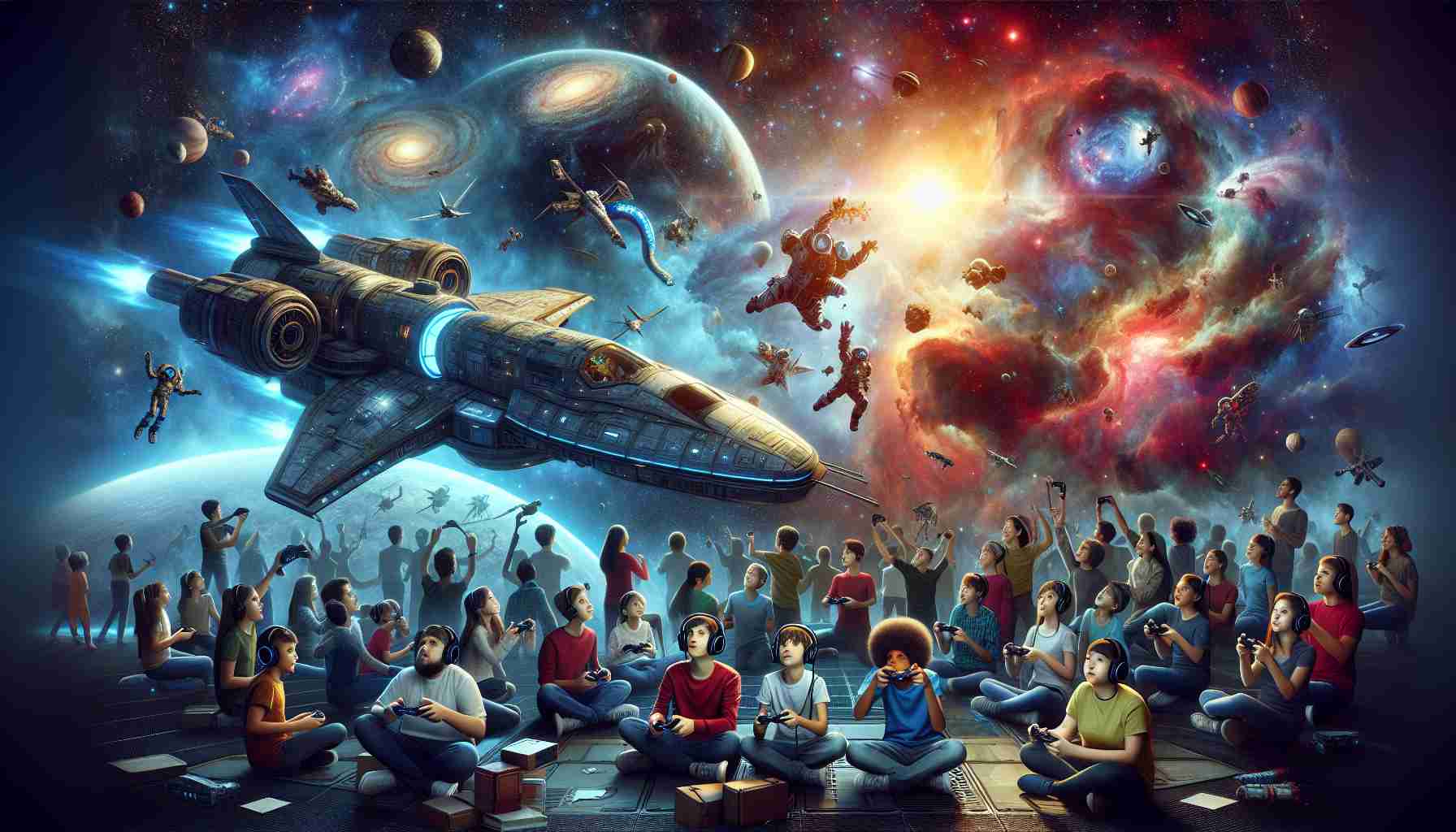As space ventures become more intertwined with the gaming world, there’s an exciting fusion occurring between the realms of gaming and space exploration. This blend is not just enhancing entertainment; it’s providing gamers with unprecedented opportunities to immerse themselves in real cosmic journeys.
In recent developments, gaming companies are collaborating with space agencies and tech firms to create real-time space exploration simulators. These simulators utilize live data from satellites and telescopes, allowing players to explore celestial bodies in vivid detail. Imagine navigating the Martian landscape not just as a pixelated frontier but informed by the latest rover findings. This dynamic shift from fantasy-based worlds to reality-enhanced simulations could change gaming and space enthusiasts’ landscape forever.
Moreover, with the rise of Virtual Reality (VR) technology, VR headsets transport players into the cosmos. Picture strapping on a VR set and experiencing the chilling vastness of space, the gentle twirls of galaxies, or accompanying astronauts on their missions. It’s an immersive experience that blurs the line between game and reality, offering educational elements woven seamlessly with interactive fun.
This burgeoning field isn’t merely about entertainment. It’s about inspiring future generations of explorers. By blending gaming with real-world data, developers hope to spark curiosity in budding scientists, urging them to dream beyond their horizons. As technology advances and these gaming landscapes become more interactive and detailed, the possibilities are as limitless as the universe itself.
How Gaming and Space Exploration Are Reshaping Our World
The merging of gaming and space exploration is not just a spectacle for cosmic fans—it’s a transformative force impacting individuals, communities, and even nations. This phenomenon extends beyond entertainment, challenging traditional educational paradigms and fostering international collaborations.
Educational Opportunities: These new gaming experiences offer an unprecedented educational tool. Schools can harness these simulations to teach astronomy, physics, and geography in an engaging manner, potentially increasing student interest in STEM fields. Could this spark a new wave of scientists and explorers ready to tackle the mysteries of the universe?
Global Impact: On a broader scale, countries are witnessing a flourishing space-tech industry. Nations investing in this duality are seeing benefits in both tech innovation and education. As more countries join the space race digitally, the economic and educational disparities might shrink, fostering global scientific communities.
Controversies: However, this virtual expansion raises questions. Who controls the narrative of space exploration in this new medium? Are we faithfully representing data, or does commercialization dilute scientific accuracy? Balancing entertainment with true representation is crucial.
The Human Experience: At the heart of this fusion is the human experience. For many, it’s about more than just games or space; it’s about connection. People from all walks of life can share a journey through the stars, enriching their cultural and scientific understanding along the way.
Despite its advantages, critics argue the over-reliance on technology and virtual experiences could lead to a disconnection from the tangible world. Could this new form of escapism hinder our appreciation for the tangible, earthly wonders around us? Finding that balance will determine the future of this exciting intersection.
For more about space and its emerging technologies, visit NASA and SpaceX.

